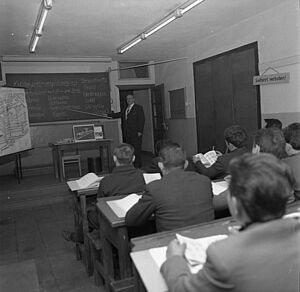- The Institute
- Research
- Dictatorships in the 20th Century
- Democracies and their Historical Self-Perceptions
- Transformations in Most Recent History
- International and Transnational Relations
- Edited Source Collections
- Dissertation Projects
- Completed Projects
- Dokumentation Obersalzberg
- Center for Holocaust Studies
- Berlin Center for Cold War Studies
- Publications
- Vierteljahrshefte
- The Archives
- Library
- Center for Holocaust Studies
- News
- Dates
- Press
- Recent Publications
- News from the Institute
- Topics
- Munich 1972
- Confronting Decline
- Feminist, Pacifist, Provocateur
- Der Mauerbau als Audiowalk
- Digital Contemporary History
- Transportation in Germany
- Envisaged Futures at the End of the Cold War
- From the Reichsbank to the Bundesbank
- German Federal Chancellery
- History of Sustainabilities: Discourses and Practices since the 1970s
- Changing Work
- Democratic Culture and the Nazi Past
- The History of the Treuhandanstalt
- Foreign Policy Documentation (AAPD)
- Dokumentation Obersalzberg
- Hitler, Mein Kampf. A Critical Edition
- "Man hört, man spricht"
- Dates
- Press
- Recent Publications
- News from the Institute
- Topics
- Munich 1972
- Confronting Decline
- Feminist, Pacifist, Provocateur
- Der Mauerbau als Audiowalk
- Digital Contemporary History
- Transportation in Germany
- Envisaged Futures at the End of the Cold War
- From the Reichsbank to the Bundesbank
- German Federal Chancellery
- History of Sustainabilities: Discourses and Practices since the 1970s
- Changing Work
- Democratic Culture and the Nazi Past
- The History of the Treuhandanstalt
- Foreign Policy Documentation (AAPD)
- Dokumentation Obersalzberg
- Hitler, Mein Kampf. A Critical Edition
- "Man hört, man spricht"
Changing Work
Social Consequences of the New Production World

Life in modern societies is defined at its core by the type of work pursued. In the second half of the 20th century, however, the working world changed fundamentally. While it was the effects of the war and the new political framework that brought about change at first, change was later driven by technological and economic factors such as digitalization and automatization, globalization and the massive expansion of the service sector. What social consequences did these processes of change have in general and for working people in particular?
The graduate seminar “Social Consequences of the Changing Working World in the Second Half of the 20th Century”, supported by the Hans Böckler Foundation, researches its topic from an empirical historical approach. The first phase of the project explored effects within companies, forms of new social inequality, and the actions of trade union leaders. For this, the group connected the historical analysis of palpable processes of change and specific actions within the political and workplace arenas with perception and interpretation. The history of work was thus embedded in the post-war history of culture and society.
The following sub-projects are part of the first project funding phase:
- The Workforce in the Automotive Industry between Boom and Crisis: The Example of BMW (Mario Boccia)
- Industrial Worlds at a Crossroads: The Changes in Work and Working Practices in the Ruhr Steel Industry, 1960-1987 (Malte Müller)
- The Working Worlds of Saleswomen in the Federal Republic of Germany, 1949-1996 (Manuela Rienks)
The seminar entered into the second funding phase in 2021:
Social forms of polarization in service professions, 1970 – 2000

Nine doctoral students are researching what societal impact has been brought about by the change in work in the expanding service sector, especially since the 1970s. Their focus lies on the growing ambivalence connected to processes of change in the working world, as is particularly pronounced in the service sector.
This had considerable consequences for the social stratification and (re-)hierarchization of European societies: The promises of “social modernity” in terms of security, consumption, and advancement (Nachtwey) continue to exist for the well-qualified section of the workforce in high-end sectors. At the same time, however, a growing number of employment relationships in professions that provide standardizable and personal services are characterized by becoming more flexible and precarious, with wage disparities and dwindling chances for trade unions to play a successful role. The research group’s studies analyze these forms of polarization with a particular focus on matters involving knowledge, gender and ethnicity.
Current sub-projects of the second funding phase:
The socioeconomic development of the Berlin’s Rudolfkiez neighborhood. (Jonas Jung)
West German Trade Unions and the “Structural Shift”: The Politics of the DGB, IG CPK, and HBV in the 1970s and Early 1980s. (Sebastian Voigt)
This doctoral seminar is supported by the Leibniz Institute for Contemporary History in Munich (Andreas Wirsching), the Center for Contemporary History in Potsdam (Frank Bösch, speaker, and Winfried Süß), and the Institute for Social Movements in Bochum (Stefan Berger). The coordinator is Sebastian Voigt.

This doctoral seminar is supported by the Leibniz Institute for Contemporary History in Munich (Andreas Wirsching), the Center for Contemporary History in Potsdam (Frank Bösch, speaker, and Winfried Süß), and the Institute for Social Movements in Bochum (Stefan Berger). The coordinator is Sebastian Voigt.
The project website can be found at www.wandel-der-arbeit.de
Photo Credits:
Photo 1: Advertisement of the DGB Union on Labor Day, 1982, BArch Plak 006-023-01
Photo 2: Data processing at the VW plant in Wolfsburg, 1973, BArch B 145 Bild-F038812-0023, photograph by Lothar Schaack
Photo 3: Italian guest workers (mineworkers) at a class in Walsum, 1962, BArch B 145 Bild-F013070-0005, photograph by Ludwig Wegmann
Title Photo: Engine manufacturing for Beetles and 412s at a VW plant in Hanover, 1973, BArch B 145 Bild-F040741-0020, photograph by Lothar Schaack



